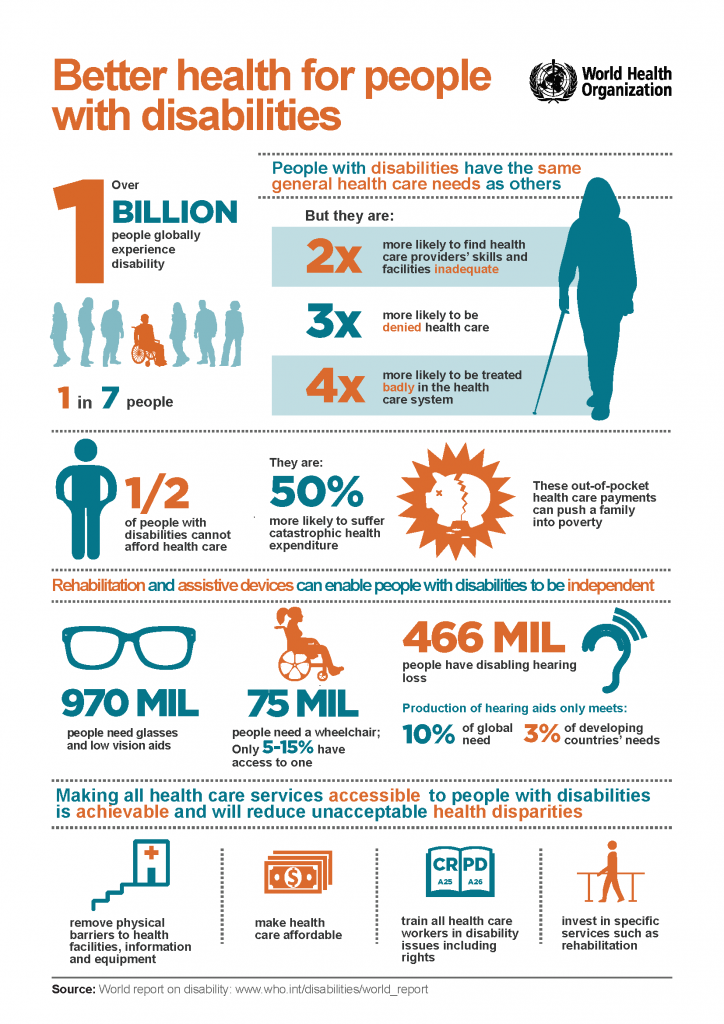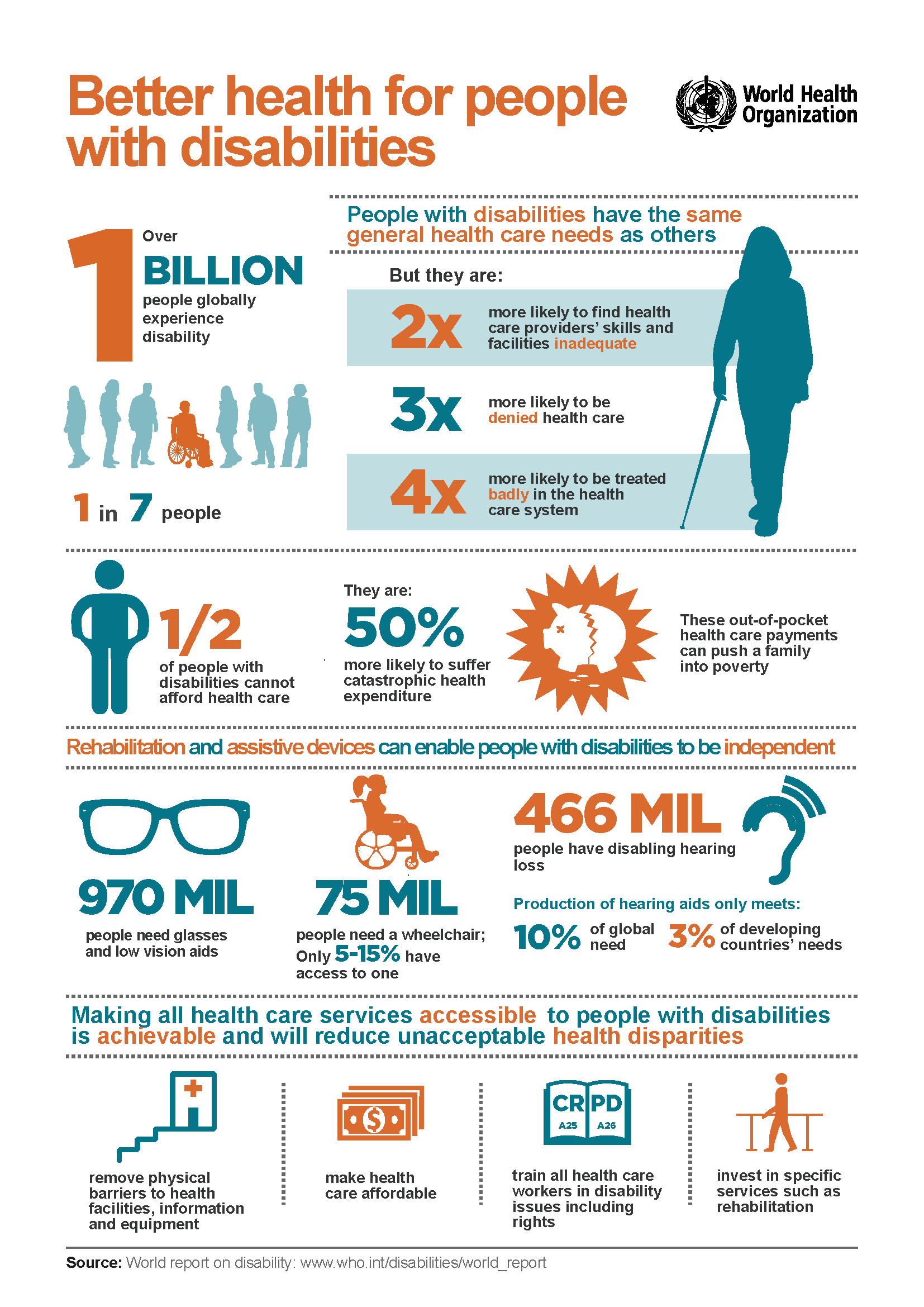By: Ashley Barker, Global Health Chair
 The disabled population continues to be a population that relies on medicine, but their needs are rarely fully met. Disability can be temporary or permanent. If you break your leg, you are considered temporarily disabled. You would be covered by the Americans with Disability Act (ADA) to receive the same accommodations as someone who is in a wheelchair permanently. The difference is that people who are permanently a part of the disabled community face blatant discrimination in medicine as an everyday occurrence.
The disabled population continues to be a population that relies on medicine, but their needs are rarely fully met. Disability can be temporary or permanent. If you break your leg, you are considered temporarily disabled. You would be covered by the Americans with Disability Act (ADA) to receive the same accommodations as someone who is in a wheelchair permanently. The difference is that people who are permanently a part of the disabled community face blatant discrimination in medicine as an everyday occurrence.
I have seen the discrimination firsthand. I have been on the receiving end of it, as a hard of hearing individual as well as someone with an invisible disability. It is incredibly frustrating that the healthcare system and the world disregard us as a minority. We are constantly overlooked, and we do not enjoy the same employment, education, and healthcare rights as other individuals.
For example, did you know people with physical and intellectual disabilities can be refused an organ? Despite the fact that this is federally illegal, there is not adequate federal enforcement, and so it is a frequent occurrence. This creates a life-threatening situation, which can be exacerbated by the lack of a medically-certified interpreter on staff. Those with intellectual disabilities often face discrimination when it comes to their health concerns being taken seriously. Many healthcare professionals will not actually address a disabled patient directly, and will instead talk to the other people in the room. In the disabled community, those with Autism and Down Syndrome often express that they feel hurt and embarrassed by this practice. This can lead to their not returning to that doctor or healthcare in general.
Under the ADA, a hospital needs to have accommodations for accessible medicine. An example of accessible medicine is an MRI machine that is made for those in wheelchairs. However, most hospitals do not supply them. Furthermore, outdated and inappropriate language is still used in the healthcare profession, even at times when they are addressing disabled patients. Care must be taken to look up appropriate language and make sure the words used to address patients are correct and are not discriminatory.
Unfortunately, everyone that is disabled faces discrimination, unfair treatment, and a lack of accessible medicine. Visual disabilities, mental health disabilities, learning disabilities, physical disabilities, hidden disabilities, cognitive disabilities, intellectual disabilities, and more. Consider the impact this has on a global level. In communities where non-disabled people barely have accessible medicine, the disparities the disabled population in healthcare face globally is astronomical. Each type of disability has a different impact on different communities. Imagine just living in a poor underserved rural community in an underserved country. Imagine trying to access medicine in such a community. To make matters worse, people who live in underserved countries are more prone to being disabled, especially from diseases that are no longer prominent in America, like polio.
Stand with me and many others to educate and advocate for these issues. There are huge gaps in policies and programs for disabled people. Do not wait until your loved one is discriminated against or you witness prejudice against yourself. Take action now! Call your representatives, sign a petition, or even attend a protest! Start having those public discussions about the discrimination against disabled people. We would all enjoy having accessible healthcare.
Finally, as you consider these issues, also imagine the discrimination or obstacles that affect your disabled healthcare colleagues.
Learn more about the International Day of Persons with Disabilities and the the United Nations Disability Inclusion Strategy!

